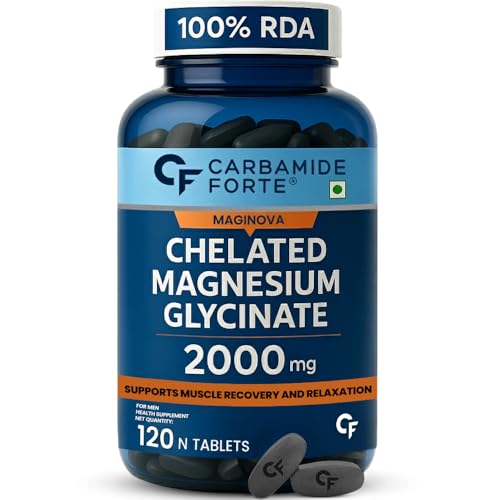Muscle Building(Amazon.in)

Understanding Muscle Building
Muscle building, also known as hypertrophy, is a physiological process through which skeletal muscle fibers increase in size and mass. This process is primarily driven by resistance training, which encompasses various forms of exercise such as weightlifting, bodyweight exercises, and resistance band workouts. When one engages in resistance training, the muscle fibers undergo micro-tears, and the body responds by repairing these fibers, leading to an increase in muscle size and strength.
Central to muscle building are the mechanisms of protein synthesis and hormone release. Protein synthesis is the process by which the body creates new proteins to repair and build muscle tissue. It is essential to provide the body with a sufficient amount of protein through diet to support this process. Foods rich in amino acids, such as lean meats, dairy products, and legumes, play a crucial role in supplying the necessary building blocks for muscle recovery and growth.
In addition to nutrient intake, hormones like testosterone, growth hormone, and insulin also significantly influence muscle growth. These hormones regulate protein metabolism, stimulate muscle recovery, and enhance overall energy utilization. Therefore, maintaining a balanced diet rich in micronutrients, along with appropriate resistance training, can optimize the hormonal environment necessary for effective muscle building.
Furthermore, muscle building contributes significantly to overall fitness and wellness. It enhances metabolic rate, promoting better calorie utilization and fat loss. Additionally, strengthening muscles improves posture and balance, thereby reducing the risk of injuries related to falls or improper body mechanics. Importantly, incorporating muscle-building exercises into regular physical activity can also lead to better functional movements, making daily tasks easier and improving quality of life.
Benefits of Muscle Building Supplements
Muscle-building supplements have gained immense popularity among fitness enthusiasts and athletes seeking to enhance their physical performance and overall health. Among the diverse array of products available, protein powders, creatine, branched-chain amino acids (BCAAs), and pre-workout formulas stand out as some of the most effective options for supporting muscle growth and recovery.
Protein powders, often derived from whey, casein, or plant sources, offer a convenient way to ensure adequate protein intake. Protein is essential for muscle repair and growth, and supplementing with protein powders can help individuals meet their daily requirements, particularly after intense workouts. This supports faster recovery, which ultimately leads to improved performance in future training sessions. Moreover, protein supplementation has been associated with increased muscle mass and strength for those engaged in resistance training.
Creatine is another popular muscle-building supplement known for its ability to enhance explosive strength and power in high-intensity exercises. It works by replenishing adenosine triphosphate (ATP) stores in the muscles, enabling athletes to perform at maximum capacity for longer durations. Studies have shown that creatine supplementation can lead to significant gains in muscle mass, strength, and overall exercise performance.
Branched-chain amino acids (BCAAs) are essential nutrients that play a crucial role in the muscle recovery process. BCAAs, which include leucine, isoleucine, and valine, can help reduce muscle soreness and fatigue after workouts, allowing for more frequent training sessions. This can lead to enhanced muscle growth and improved endurance over time.
Lastly, pre-workout formulas often contain a blend of ingredients designed to boost energy, focus, and performance during workouts. These supplements can increase endurance and reduce perceived exertion, allowing individuals to push their limits and achieve their training goals.
Incorporating muscle-building supplements effectively into a balanced nutrition plan can lead to enhanced strength, endurance, and overall physical health, making them a valuable tool for those serious about their fitness journey.
Evaluating the Safety and Efficacy of Supplements
When considering muscle-building supplements, safety and efficacy should be paramount. The landscape of supplements is vast, encompassing both natural and synthetic options. Natural supplements, derived from whole food sources, generally pose fewer risks and are often better tolerated by the body. Conversely, synthetic supplements may contain artificial ingredients or compounds that can lead to adverse reactions or long-term health issues. Thus, individuals should approach synthetic products with caution, ensuring any potential benefits are critically weighed against the possible risks.
Common ingredients in muscle-building supplements, such as creatine, branched-chain amino acids (BCAAs), and protein powders, can be beneficial when consumed correctly. However, each ingredient can also carry risks, including digestive discomfort, dehydration, or more severe complications in predisposed individuals. Therefore, it is imperative to thoroughly research the ingredients within a supplement and consult healthcare professionals when necessary. Understanding the potential side effects allows users to monitor their health and address any concerns proactively.
Furthermore, selecting reputable brands is crucial. Consumers should seek out products that are third-party tested for quality and purity, ensuring that what is on the label truly reflects the contents of the supplement. Organizations like NSF International and the Informed-Sport certification can assure a product’s safety and effectiveness. Additionally, adhering to recommended dosages is vital; exceeding the suggested amounts can not only diminish potential benefits but also increase the risk of negative side effects.
Incorporating muscle-building supplements into a fitness routine can be advantageous; however, it is essential to prioritize health and safety through informed choices. By evaluating ingredients, considering natural versus synthetic options, and ensuring reputable sourcing, individuals can effectively support their muscle-building endeavors while minimizing health risks.
Conclusion: Is Muscle Building Good or Bad for the Human Body?
Muscle building has become a focal point in fitness and health discussions, with various opinions surrounding its benefits and potential drawbacks. While enhancing muscle mass can contribute positively to overall health, understanding the implications of both muscle building and the use of supplements is crucial for individuals looking to improve their fitness. One of the primary benefits of muscle building is its ability to increase metabolic rate. A higher metabolic rate can lead to improved weight management, as well as enhanced insulin sensitivity, which is vital for preventing type 2 diabetes.
In addition to metabolic benefits, engaging in resistance training often associated with muscle building can improve cardiovascular health, bone density, and functional mobility. These advantages support a physically active lifestyle, which can positively influence mental well-being. However, it is essential to recognize that muscle building may also bring about certain risks. Excessive focus on building muscle can lead to imbalances, potential injuries, or disorders related to body image, such as muscle dysmorphia. Additionally, the choice of supplements can complicate the equation, as not all supplements are beneficial or necessary. Potential risks associated with misuse include adverse health effects, which highlight the importance of informed decision-making when it comes to supplementation.
Ultimately, muscle building can be a beneficial endeavor for many individuals, provided it is approached mindfully and sustainably. Readers should seek guidance from qualified health professionals, particularly when considering the integration of dietary supplements into their muscle-building programs. By consulting with experts, individuals can better align their fitness goals with their health needs, ensuring that their approach to muscle building is both balanced and effective.



